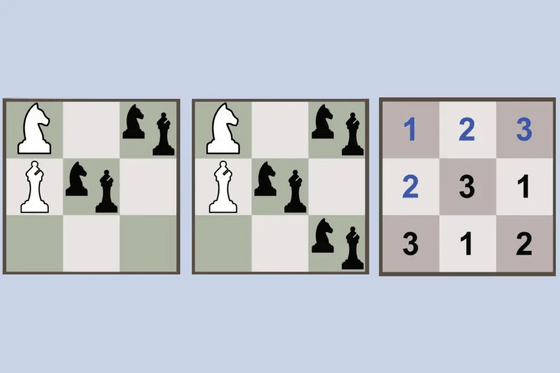The world's first 'DNA computer capable of both data storage and calculation' is developed

In almost all modern devices, such as smartphones and PCs, the computing device that processes data and the storage device that stores data are separated, and the speed at which data is exchanged between the devices limits the performance of the entire system. Unlike conventional devices that have this problem called
A primordial DNA store and compute engine | Nature Nanotechnology
https://www.nature.com/articles/s41565-024-01771-6
For First Time, DNA Tech Offers Both Data Storage and Computing Functions | NC State News
https://news.ncsu.edu/2024/08/functional-dna-computing/
Unprecedented DNA computer solves Sudoku and mini-Chess, potentially stores an ungodly amount of data
https://www.zmescience.com/future/unprecedented-dna-computer-solves-sudoku-and-mini-chess-potentially-stores-an-ungodly-amount-of-data/
DNA sequences, also known as the blueprint of life, are memory devices that life has used as a codebase for billions of years, providing molecular templates for biological structures and processes. In theory, they can also represent any sequence of information in a chemical string. To harness this mechanism for computational technology, scientists have long been studying how to embed data directly into DNA strands.
The system developed by researchers at North Carolina State University and Johns Hopkins University uses flexible polymer structures called 'dendricolloids' to handle DNA data.
According to the announcement, dendricolloids have a tiny tree-like structure that can safely hold delicate molecular structures as scaffolds for DNA, while also being able to store large amounts of data across their vast surface area.

'A DNA-based storage device the size of a pencil eraser could store the equivalent of 1,000 laptops' worth of data,' said Albert Keung of North Carolina State University, co-corresponding author and project leader of the paper.
Dendricolloids are not only excellent in terms of storage capacity, but also in terms of data preservation: accelerated aging analysis has shown that the half-life of a code stored in a dendricolloid at 4°C is 6,000 years, and at an even lower temperature of -18°C, it is estimated that the storage period could reach 2 million years.
The research team further developed a technique to distinguish between DNA information and the dendricolloid nanofibers in which it is stored, allowing them to transcribe data into ribonucleic acid (RNA) for processing, or edit DNA to rewrite data in specific regions, without damaging the original storage medium or 'DNA file.'
Experiments have also confirmed that the robot can perform basic mathematical calculations such as solving 3 x 3 chess and Sudoku puzzles.

by Nature Nanotechnology
So far, DNA computers have not come close to matching the speed and computational power of state-of-the-art supercomputers, but they are an attractive technology for a DNA-based archive to preserve human knowledge across the rise and fall of civilizations. Researchers also believe that the ability to process biological data in real time could lead to applications in fields such as medicine.
'Until now, it has been thought that DNA data storage might be useful for long-term data storage, but it would never be able to perform the functions of traditional electronic devices, such as storing and moving data, reading, erasing, rewriting and reloading specific data files, or performing calculations,' Keung said. 'But we've now demonstrated that DNA-based technology can do that, because we've actually built it.'
Related Posts:
in Science, Posted by log1l_ks







